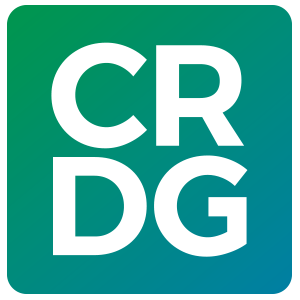Teacher Content Knowledge & Inquiry Teaching Skills
Teachers in the early grades are underprepared to effectively meet the NRC expectations, which require a much greater depth of knowledge of content and expertise in choosing and effectively using appropriate inquiry teaching strategies. The amount of STEM education elementary teachers typically receive in teacher preparation programs is minimal, resulting in them being underprepared to teach STEM content and practices (Settlage, et al., 2009; Harlen & Holroyd, 1997; Bleicher, 2006). Whereas elementary school teachers in other countries specialize in teaching science and mathematics, American elementary school teachers do not. Most American elementary school teachers know little science and many are very uncomfortable with these subjects. “Only the United States, among all the industrialized countries, allows its teachers to teach subjects they have not been highly trained in” (Tucker, 2011, pg 18). If we expect elementary teachers to be successful in implementing the current visions of classrooms as articulated by the NRC, we must take into account their capacity to implement these changes. Elementary teachers especially are well known to lack critical content knowledge and the time needed to learn it (National Center for Education Statistics, 2005; Shavelson & Kurplus, 2011). This presents a major challenge for curriculum developers and professional developers. Addressing the need for better develop STEM capacity with in-service teachers will require on-going PD, significant change in available instructional materials, opportunities to understand and experience inquiry teaching strategies, and appropriate implementation support (Loucks-Horsley, et al., 2010).
“Teaching science as envisioned by the framework requires that teachers have a strong understanding of the scientific ideas and practices they are expected to teach, including an appreciation of how scientists collaborate to develop new theories, models, and explanations of natural phenomena. Teachers also need to understand what initial ideas students bring to school and how they may best develop an understanding of scientific and engineering practices, crosscutting concepts, and disciplinary core ideas across multiple grades. . . Furthermore, . . . teachers need science-specific pedagogical content knowledge . . .such as the ability to recognize common prescientific notions that underlie a student’s questions . . . (T)eachers need to learn how to use student-developed models, classroom discourse, and other formative assessment approaches to gauge student thinking and design further instruction based on it” (NRC, 2011, pg 10-10).
However, in a recent national survey on STEM education (IESD, 2011), professional development (PD) for inservice teachers was perceived to be insufficient. A majority of respondents identified the following as the most important challenges facing STEM education in the U.S.
- Funding in K–12 PD specifically designated for STEM is insufficient (74.0%)
- Number of qualified STEM teachers is too low (55.9%)
- Professional development for STEM teachers is insufficient (54.6%).
Almost one-fourth (23.4%) of the respondents reported that no new STEM initiatives are planned for 2011–2012 in their schools, despite the widespread adoption of Common Core State Standards and the fast approaching next generation science standards. Content knowledge development was most often identified as helpful to teachers (50.2%); about one-third of the respondents (34.5%) identified PD on pedagogy as most helpful.
References
Bleicher, R. E. (2006). Nurturing confidence in preservice elementary science teachers. Journal of Science Teacher Education, 17, 165–187
Harlen, W., & Holroyd, C. (1997). Primary teachers’ understanding of concepts of science: Impact on confidence and teaching. International Journal of Science Teaching, 19, 93–105.
Loucks-Horsley, S., Love, N. B., Stiles, K. E., Mundry, S. E., & Hewson, P. W. (2010). Designing professional development for teachers of science and mathematics (3rd ed.). Thousand Oaks, CA: Corwin.
National Center for Education Statistics. (2005). Characteristics of public school teacher’s professional development activities: 1999-2000, NCES 2005-030. Washington, DC: U.S. Department of Education, Institute of Educational Sciences.
National Research Council. (2011). A Framework for K–12 Science Education: Practices, Crosscutting Concepts, and Core Ideas. Washington, DC: National Academy Press.
Settlage, J., Southerland, S. A., Smith, L. K. & Ceglie, R. (2009). Constructing a doubt-free teaching self: selfefficacy, teacher identity, and science instruction within diverse settings. Journal of Research in Science Teaching, 46 (1), 102–125.
Shavelson, R. J. & Kurplus, A. (2011). Reflections on learning progressions. In Alonzo, A. C. & Gotwals, A. W. (Eds.) Learning Progressions in Science. Rotterdam, the Netherlands: Sense.
Tucker, M. S. (2011). Standing on the Shoulders of Giants: An American Agenda for Education Reform. Washington, DC: National Center on Education and the Economy.




